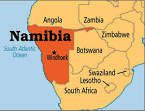Namibian activists have petitioned the United Nations over what they described as a “patronising” offer by the German government to compensate victims of a 1904-1908 genocide in the southwest African country.
The German government last month pledged to pay €1.1 billion (about US$1.2 billion) over the next 30 years in compensation to victims of the 1904-1908 Nama-Herero genocide by providing funding for social projects benefiting the descendants of the survivors.
Under the arrangement, the Berlin authorities would fund infrastructure, health care and training projects in Namibia as a means of apologizing for the genocide during Germany’s colonial rule.
The offer has, however, been rejected by the Nama and Herero tribes as inadequate, prompting German Foreign Minister Heiko Maas to announce this week that agreement initialled with the Namibian government does not provide for reparations, but for development aid.
This prompted Nama and Herero activists, led by politician Kazenambo Kazenambo, to petition the UN on Thursday to intervene in the matter, charging that the German authorities have allegedly exhibited a “hide and seek” attitude throughout the negotiations with Namibia.
“Germany, instead of facing and engaging the descendants of the genocide, has chosen to work with the government in gross violation of the UN charter on human rights,” Kazenambo said.
He said the German offer is a blatant disregard of the human rights of the Namibian people and undermines the lives of the people who were killed.
“The current agreement will not bring closure or restorative justice to the affected communities,” he said.
Namibian groups, including traditional chiefs and opposition groups, want reparations of at least US$580 million per annum which should be paid over a 40-year period.
JN/APA


